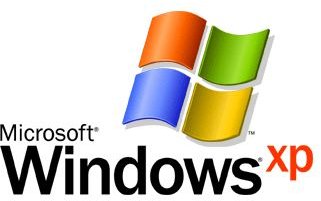Complete Guide to Speed Up Windows XP - Solving Windows XP Performance Problems
Want to Improve the Speed of Windows XP?
Windows XP, though the Old Faithful of operating systems these days, does have some known problems with slowness, especially after its been in use for quite awhile. There are a lot of reasons for this, but having some basic information on why slowdowns happen and how to improve the speed of Windows XP will ensure that you get many more years out of your computer, and Operating System.
A good place to start looking is at the reference article about general Windows XP support. There you’ll find links to all kinds of articles and tools that will help you identify problems that are slowing down your XP computer. One of the inherent slowdown issues with Windows XP is a result of how the Windows Registry works. Using a trusted Registry Cleaner can help improve speed a great deal.
Slow Bootup, But Otherwise Good
A lot of people dismiss Windows XP slowdown problems because they only notice it when they first boot up the computer. Or, perhaps they don’t notice it because they’re in the habit of turning the computer on the walking away for awhile. However, one of the first signs of XP slowdown is slow startup speeds, which can be easily improved with a little bit of knowhow. There are many XP startup options to boost speed, but one of the most noticeable solutions comes from disabling Windows XP startup programs that you don’t need.
Files Not Organized Like a File Cabinet
While Windows operating systems, in general, do a good job of making files look like real files (like those you might find in a file cabinet), the fact of the matter is that they in no way represent the true organization of files on a hard disk. There are no neat labeled containers in which we keep all our music, all our movies, or all our private documents. In fact, the hard disk is, in many ways, much more like a magnetic tape. You start recording at one end and stop at the other. It’s slightly more complex with that, with different platters and sectors and clusters, etc, but in essence functions the same way. A lot of Windows XP slowdown is a result of too many files, fragmented files, and other file woes - but fortunately they are easily remedied.
Over many months of years, we tend to cycle through a lot of stored data, like different programs that we install and uninstall, or pictures that we store for awhile and later back up to disk or just discard. If you haven’t done so before, something helpful you can do is to remove unwanted programs and unwanted files to speed up your computer. After you’ve done that, though, something fascinating happens. Remember the magnetic tape example? Now imagine erasing sections of that tape, then filling them in with other data. Only in this case, that data won’t fit in the empty spaces and ends up scattered throughout the length of the tape. This is what is happening when we use the term hard drive or file fragmentation.
There are plenty of ways to clean up scattered files in Windows XP, though many prefer third party software like the defragmentation tool PerfectDisk 10. There is more to speeding up a hard drive than just disk defragmenting, as you can learn about in this article about optimizing your hard drive to speed up Windows XP.
The swap file is a section on the hard drive that is dedicated to acting like RAM (random access memory), but moving it to another drive or other location can often help improve performance in Windows XP.
Hardware Solutions to Software Slowness
Sometimes the only way to squeeze additional speed out of your XP machine is to adjust advanced hardware options or upgrade it. This more advanced guide shows users how to speed up XP by optimizing CPU usage. If you’ve been using an XP machine for several years, particularly in a networked business environment, it is quite possible that old network connections are slowing down your system.
If all else fails, you can always speed up your Windows XP computer by performing a Do-It-Yourself Memory Upgrade.
